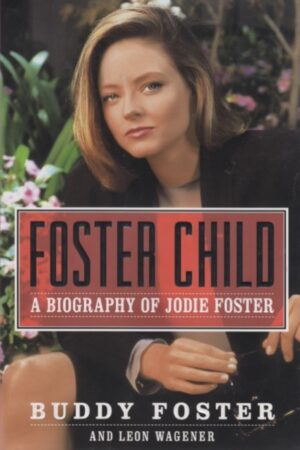
The short version of why I read this “tell all” about one of my favorite actors is that the author once appeared in my courtroom in Duluth, MN. I’ll flesh that out in a future memoir about my time as a writer and judge, but that event, along with my life-long adoration of Ms. Foster (not in a creepy way, like Hinckley but in a platonic, adulating way) compelled my curiosity. It took nearly 20 years for me to track down the book but I finally read it. Here’s my take.
The writing is fairly simplistic and without much heft, making this a breezy read. There is much repetition in Buddy’s constant drumbeat of how dysfunctional his childhood was, how absent his father was, how mean and sometimes crazed his mother was. It’s a bit distracting, reading the same allegations and failings over and over and over again, all of which makes it pretty hard to miss Buddy’s main point: Jodi Foster is tough, no-nonsense survivor, not unlike many of the characters she portrays. Given this significant flaw in the book (and the fact that Buddy had assistance from co-writer Leon Wagener in creating this family portrait) it would be easy to dismiss the book as Buddy’s attempt to earn a payday off the slender shoulders of his little sister. There might be some of that at work here. The sister was not pleased when the book was released: “I feel sad for him. Mostly, I feel sad for my 69-year-old mother, who has spent her life struggling to raise four children on her own … Buddy has done nothing but break her heart his whole life. That’s a kind of sadness no mother will ever get over.” (Quoting Ms. Foster from a 1997 CNN interview.)
As I said, there’s likely some element of seeking to regain his own fame (Buddy was the original Foster child actor; starring in both Hondo and Mayberry RFD before watching his career disintegrate and watching his sister become a household name) as well as a significant financial incentive for someone so close to a movie star to write a revelation of their shared childhood. And yet, despite all its flaws and potential conflicts of interest, the book draws you in because, well, she is Jodi Foster, a seemingly impenetrable fortress of female determination whose private life is virtually unknown while her public roles, from Taxi Driver to Silence of the Lambs to The Panic Room to The Mauritanian (2021) make it seem like we know the woman Jodi Foster has become. It is the portrait of Ms. Foster’s enigmatic nature, together with her brother’s reflections on her dedication to task, fierce independence, and intellect, all set against the backdrop of shared troubled lives (Buddy’s more so than hers) that makes this book a worthy read if you are interested in trying to discern “what makes Jodi tick”. That secret isn’t revealed in any sort of exactitude; just as the mystery of Ms. Foster’s sexual preference (or preferences), while touched upon ever-so-briefly, doesn’t lead the reader to any sort of obvious conclusion. Quite frankly, the woman is such a brilliant talent and mind, I don’t care who she loves (just as I don’t give a damn if Kevin Spacey is gay; I do care if he is a pedophile who abused his power). Her sexual orientation is her own damn business.
In the end, Foster Child is not nearly as hateful, nor revelatory as Ms. Foster’s contemporaneous remarks suggest. There’s value in what her brother has to say about their shared history. Yes, sometimes the arc of the story gets bogged down in repetition and yes, references to Jodi’s work are dated (she’s had further, great success in films following Contact, where the story ends, both as an actor and director). But there’s the gist of a story here for those who care to dive in.
3 and 1/2 stars out of 5.
Peace.
Mark


